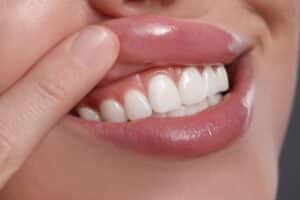Am I A Good Candidate For Same Day Crowns?
 When you’re dealing with a damaged, worn, or weakened tooth, you want a solution that’s fast, effective, and lasting. With same day crowns, you can restore your smile in just one visit. At Dr. Ania’s practice, you receive personalized care using cutting-edge technology and a cosmetic approach that blends seamlessly with your natural smile. Located in Boulder, CO, Dr. Ania brings years of experience and a gentle, patient-focused philosophy to every treatment.
When you’re dealing with a damaged, worn, or weakened tooth, you want a solution that’s fast, effective, and lasting. With same day crowns, you can restore your smile in just one visit. At Dr. Ania’s practice, you receive personalized care using cutting-edge technology and a cosmetic approach that blends seamlessly with your natural smile. Located in Boulder, CO, Dr. Ania brings years of experience and a gentle, patient-focused philosophy to every treatment.
What Are Same Day Crowns?
Same day crowns are custom-made dental restorations created and placed in a single appointment. Using advanced CAD/CAM technology, your crown is designed to match the shape, size, and color of your natural teeth. The material is durable, aesthetic, and crafted to fit comfortably. This option eliminates the need for temporary crowns or multiple visits, offering convenience without compromising quality.
Who Benefits Most From Same Day Crowns?
You may be a great candidate if you:
-
Have a cracked, chipped, or broken tooth
-
Need a large filling replaced
-
Have significant decay that cannot be treated with a filling
-
Have a previously crowned tooth needing replacement
-
Want to restore a tooth after root canal therapy
-
Prefer a fast, one-visit solution
If you’re in good general oral health and don’t require extensive treatment beyond the crown, you’re likely to benefit from this efficient and modern approach.
What Conditions Might Delay Treatment?
While same day crowns are ideal for many, they aren’t the right solution for everyone. If you have gum disease, untreated tooth infections, or teeth that need major orthodontic correction, you may need to address those concerns first. A consultation with your dentist is the best way to understand your options and receive a personalized treatment plan.
Why Choose Same Day Crowns Over Traditional Crowns?
Same day crowns offer clear advantages, including:
-
Immediate results in a single visit
-
No temporary crown or second injection
-
Precise digital impressions
-
Natural-looking materials designed to match your smile
-
Long-lasting strength and comfort
This option saves time while delivering exceptional cosmetic and functional results.
Ready To Restore Your Smile?
If you’re wondering whether same day crowns are right for you, schedule a consultation with Dr. Ania in Boulder, CO. Her expertise in cosmetic and restorative dentistry ensures a smooth and supportive experience. Call (303) 443-0998 today to book your appointment and discover how quickly you can get back to smiling with confidence.


 If you’re looking for a way to achieve a beautifully aligned smile without the hassle of traditional braces,
If you’re looking for a way to achieve a beautifully aligned smile without the hassle of traditional braces,  When you think about your oral health, you likely focus on cavities, cleanings, and whitening. But gum recession is just as critical and often overlooked. If you ignore it, the issue can progress into long-term damage that compromises not just your smile, but your overall health. That’s why choosing a trusted provider like
When you think about your oral health, you likely focus on cavities, cleanings, and whitening. But gum recession is just as critical and often overlooked. If you ignore it, the issue can progress into long-term damage that compromises not just your smile, but your overall health. That’s why choosing a trusted provider like  If you’ve been experiencing unexplained jaw pain, headaches, or a clicking sound when you chew, you might be dealing with a temporomandibular joint (TMJ) disorder. TMJ issues can start subtly but quickly lead to significant discomfort or even long-term damage if left untreated. Fortunately,
If you’ve been experiencing unexplained jaw pain, headaches, or a clicking sound when you chew, you might be dealing with a temporomandibular joint (TMJ) disorder. TMJ issues can start subtly but quickly lead to significant discomfort or even long-term damage if left untreated. Fortunately,  Gum health plays a crucial role in maintaining your overall oral well-being. If left untreated, gum recession can lead to serious dental problems, including tooth sensitivity, root exposure, and even tooth loss. Choosing an experienced provider like
Gum health plays a crucial role in maintaining your overall oral well-being. If left untreated, gum recession can lead to serious dental problems, including tooth sensitivity, root exposure, and even tooth loss. Choosing an experienced provider like  Dental implants are a lasting solution for missing teeth, designed to look and function just like natural teeth. Choosing an experienced provider like
Dental implants are a lasting solution for missing teeth, designed to look and function just like natural teeth. Choosing an experienced provider like  If you’re waking up with headaches, jaw pain, or worn-down teeth, you might be dealing with bruxism—chronic teeth grinding or clenching. Bruxism often occurs during sleep, making it hard to control or even notice. Left untreated, it can lead to serious dental problems such as enamel erosion, fractured teeth, and TMJ disorders. That’s why choosing a trusted provider like
If you’re waking up with headaches, jaw pain, or worn-down teeth, you might be dealing with bruxism—chronic teeth grinding or clenching. Bruxism often occurs during sleep, making it hard to control or even notice. Left untreated, it can lead to serious dental problems such as enamel erosion, fractured teeth, and TMJ disorders. That’s why choosing a trusted provider like  If you’ve ever hesitated to explore orthodontic care as an adult, now is the ideal time to reconsider. Whether you’re dealing with misaligned teeth, bite issues, or want to improve your smile’s appearance, adult orthodontics offers personalized solutions that fit your lifestyle.
If you’ve ever hesitated to explore orthodontic care as an adult, now is the ideal time to reconsider. Whether you’re dealing with misaligned teeth, bite issues, or want to improve your smile’s appearance, adult orthodontics offers personalized solutions that fit your lifestyle.  When you visit
When you visit  If you often feel excessively tired during the day despite getting what seems like enough sleep, you may be experiencing undiagnosed sleep apnea. This condition disrupts breathing while you sleep, leading to poor-quality rest and persistent fatigue. At
If you often feel excessively tired during the day despite getting what seems like enough sleep, you may be experiencing undiagnosed sleep apnea. This condition disrupts breathing while you sleep, leading to poor-quality rest and persistent fatigue. At 